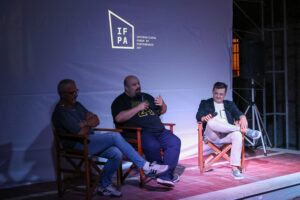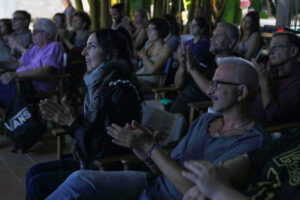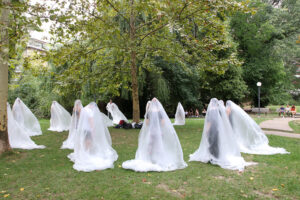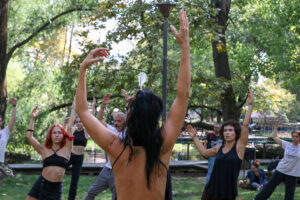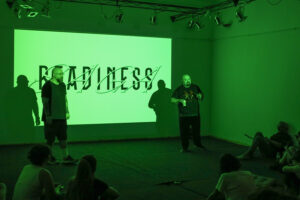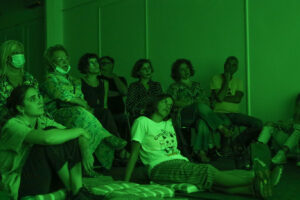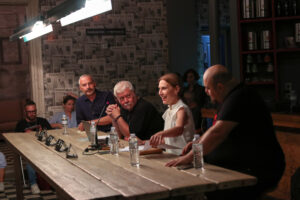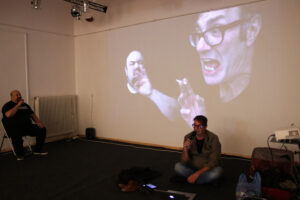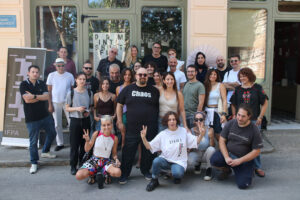
IFPA 2022
4th International Forum of Performance Art
September 16–18, 2022, Drama
With the theme “(RE)APPROACH NOW!”, the 4th International Forum of Performance Art took place on September 16–18, 2022, in Drama. The guest artists and academics developed their presentations around the theme, combining live performances, theoretical talks, and educational activities.
The following artists participated in the program: Ektor Mavridis, Yannis Mitrou, Filippos Tsitsopoulos, Murman Meryl, and Strauss Julia.
The following presented at the Forum: Vasilis Alexandrou, Giorgos Drivas, Vicky Konstantinidou, Mitrou Giannis, Bachtsetzis Sotiris, Stafylakis Kostis, Triantafyllidis Theo, Trikas Dimitris, and Hatzidimitriou Penelope.
The educational student hosting program, a key pillar of the IFPA, was a great success, with 15 students from Aristotle University of Thessaloniki participating in a series of workshops and activities under the guidance of renowned artists and theorists. Workshops were conducted by: Theodosiou Maro, Tsitsopoulos Filippos, Charela Maria, and Strauss Julia.
In addition, Akis Kersanidis and Chrysa Tzelepi participated in the program.
At the same time, the IFPA’s Viewing Room hosted 35 performance and video art works from 17 countries, including Colombia, Bolivia, Germany, Singapore, France, the USA, Argentina, South Africa, Romania, and others.
The 4th International Forum of Performance Art was held under the auspices of the Ministry of Culture.



